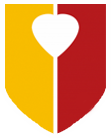We offer the following vocational courses. Please click on the links for further information about these courses, including any subject specific entry criteria To enrol onto vocational courses, students will need to have achieved a minimum of grade 4 in GCSE English and/or GCSE Maths, along with at least 4 other grade 4+.
Art and Design BTEC
The BTEC Art course is a natural progression from GCSE, developing skills in photography, fine art, and more. It’s ideal for students interested in further study or careers in design, fine art, or architecture.
BTEC Business
This course provides a comprehensive introduction to the business sector, covering areas like marketing, human resources, and finance. It’s perfect for students looking to enter business management or entrepreneurship.
Read More
Creative Media Digital Production
This course helps students develop an understanding of the media industry, including media representations,, and producing media products.
Criminology
Criminology focuses on the study of crime, crime prevention, and how society reacts and controls crime. It leads to careers in the Criminal Justice System and beyond.
Health and Social Care
This course provides vocational knowledge in the health care sector, developing key skills in communication, empathy, and professionalism, with pathways to careers like nursing and physiotherapy.
BTEC IT
Develop IT application skills and learn how IT applied in business. This course is ideal for students interested in the applied side of computing.
BTEC Sport
The BTEC Sport course offers insight into the sports industry, with topics covering anatomy, physiology, fitness training, and career development in sports.
BTEC National in Computing (Extended Certificate)
The Pearson Level 3 Alternative Academic Qualification BTEC National in Computing (Extended Certificate) gives students opportunities to develop the core knowledge, skills and understanding that underpin computer programming and to develop computational thinking and programming skills that will enable them to solve problems.

